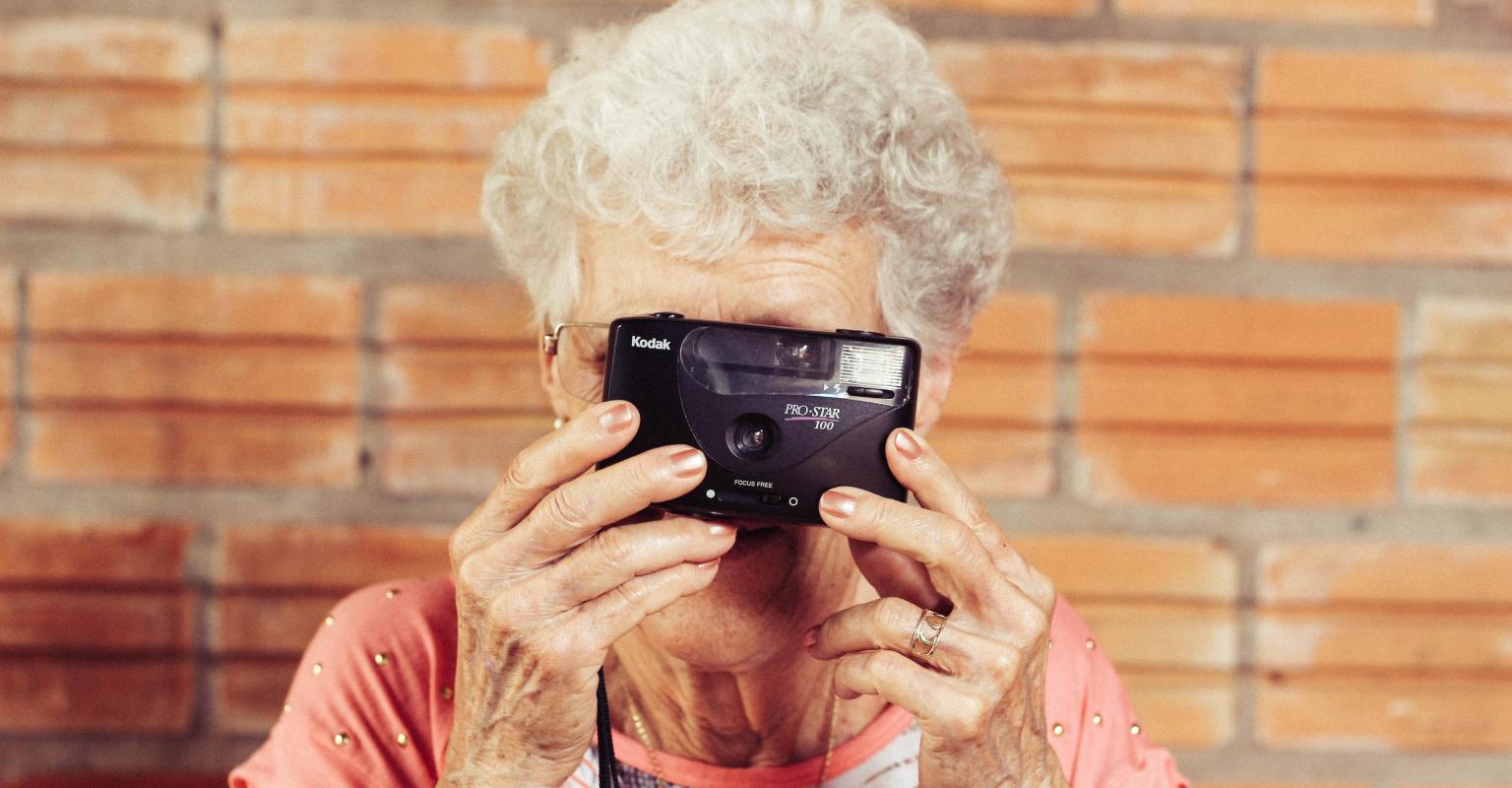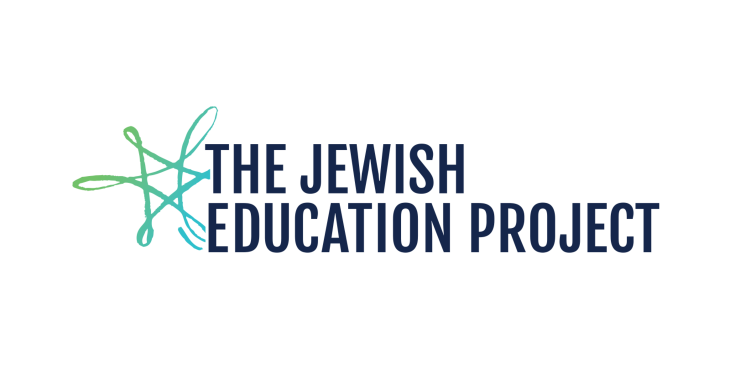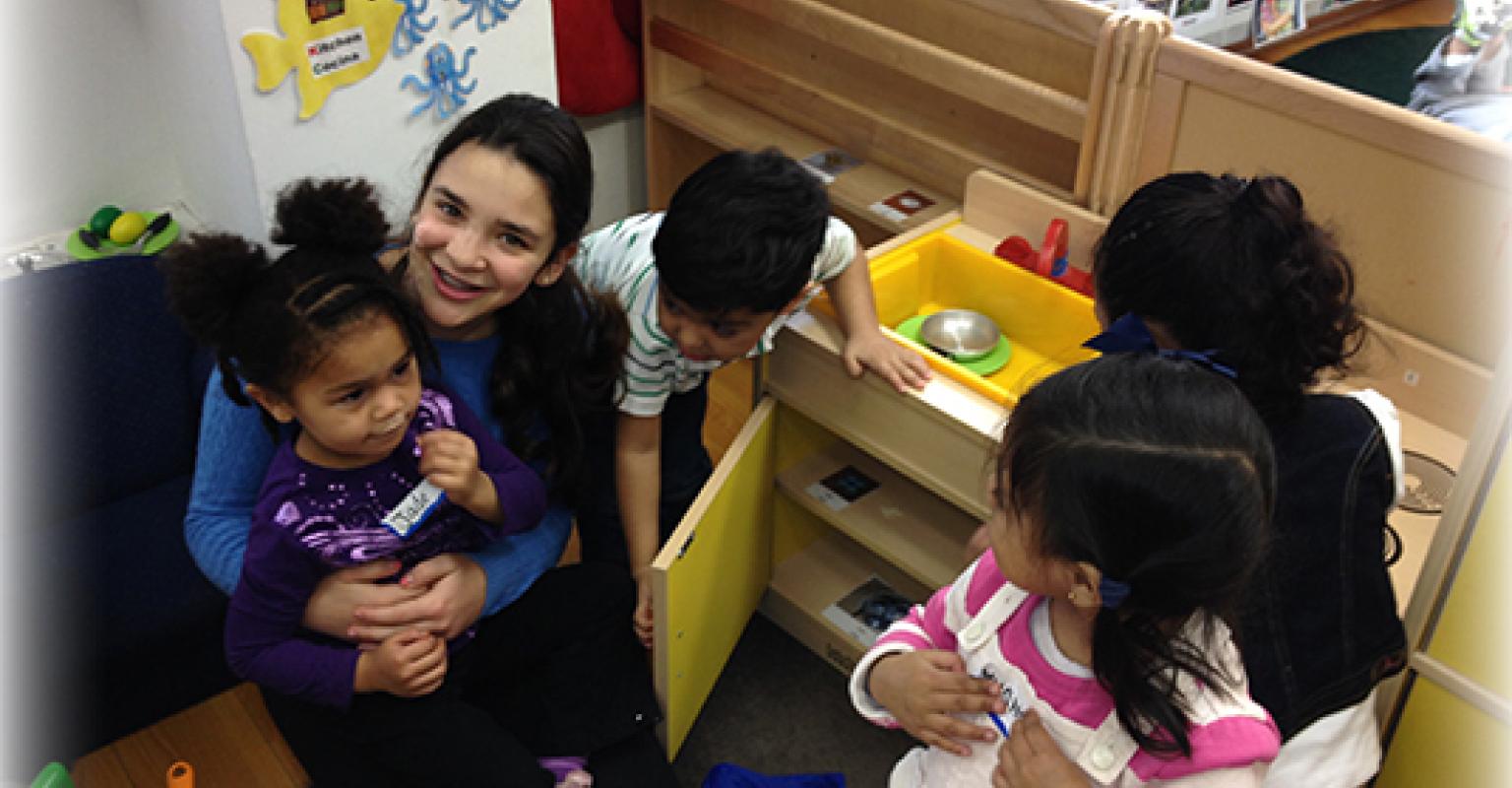Intergenerational Model: Intergenerational Torah Study
Congregation Emanu-El of Westchester, Rye, NY
Model description adapted from The Express Innovation Guidebook, 2011.
What Were You Trying to Achieve with this Model?
-
To create community through “Learning and Study,” one of the three pillars outlined in the congregational vision
-
To provide Jewish role models for students
-
To promote the idea that congregants of all ages are valued members of the community
-
To enable students to see that the Torah is a living aspect of Judaism
Who are the Learners?
-
Intergenerational teams consisting of two adults, one teen, and four or five 6th or 7th grade students
-
Adults range in age, with some members in their eighties and others in their forties and fifties. Many no longer have kids in the school.
-
All parents of 6th and 7th graders are asked to participate at least one time.
-
Many of the adults participate over several years creating continuity in the model.
-
Most of the teens are in 10th-12th grade.
-
Adults and teens are both learners and learning facilitators.
Who are the Educators/Learning Facilitators?
-
The rabbi leads adults and teens with learning around Judaic content.
-
The educator leads adults and teens with learning focusing on pedagogy.
- Adults and teens serve as learning facilitators for 6th and 7th graders.
What is the Learning? How is it Designed?
-
Teens, adults, and parents meet with the rabbi to study a relevant text each month.
-
The educator meets with the teams to think about how to approach the text with the 6th and 7th graders.
-
Teams (two adults and one teen) meet for 15 minutes to decide how they will teach the text.
-
In the meantime, 6th and 7th graders read over the text in their classes.
-
Teams lead learning with 4-5 students for 35 minutes.
Where Does the Learning Happen?
-
Meetings with the rabbi take place in the synagogue library.
-
Meetings with the students take place in synagogue classrooms.
When Does the Learning Happen?
-
Once a month during Sunday school hours
-
Three times a year for the sixth grade
-
Four times a year for the seventh grade
What is Inspiring about this Model?
-
It has fulfilled a need for older congregants looking for a connection with the Temple.
-
The experience connects 6th and 7th graders to what they will be doing in their Bar/Bat Mitzvah.
-
It provides an additional opportunity for teen engagement beyond being a teaching assistant on Sunday mornings.
-
It builds connections across the generations in the congregation.
-
As the students and adults engage in the study together, each brings their own experience to the process. They create connections to one another and to the texts.
Key First Steps and Recruitment Plan:
-
The president of the congregation spoke about the model on the High Holidays.
-
Personal contact was made with potential volunteers.
- A calendar was set early on and shared with volunteers.
Role of Governance and Clergy:
-
This model was originally created in partnership with laypeople.
- The lay team remains involved in the assessment of the model from year to year.
Budget:
Given the volunteer nature of the model, the congregation incurs almost no additional cost.
Additional Notes:
-
A commitment of time on the part of the rabbi and the educator to prepare teams to work with students.
-
A commitment of time on the part of adults and teens to work with the students.
-
Grant (LOMED) funds were used this year to bring in an Educational Resource Provider to work with the teams.
- Adult volunteers and teens can participate in the model without advance preparation. They study the text, decide how to focus the learning, and then meet with the students.
How Do You Describe Your Congregation?
Congregation Emanu-El of Westchester is a Reform Congregation with approximately 330 family membership units. There is a rabbi, cantor, education director, and director of youth activities.
- Models-In-Action
- Intergenerational Learning
- TaNaKh
- Jewish Text and Thought
- 6 - 7
- 8 - 12
- After School Programming
- Congregational Learning
- Teen Engagement
- Educator Training
- Early Childhood
Discover more

A collection of Intergenerational Learning Models for innovation in Congregational Learning

Peninsula Temple Beth El (PTBE), San Mateo, CA. Families in small groups with similar age kids begin learning together, move into separate groups for parallel study and then come back together for a family activity followed by participation in Shabbat worship.

Congregation Emanu-El of NYC. 8th graders explore different ways of doing social justice including fundraising and philanthropy, community organizing and advocacy as well as the Jewish context for these approaches. They volunteer throughout the year.
